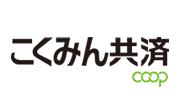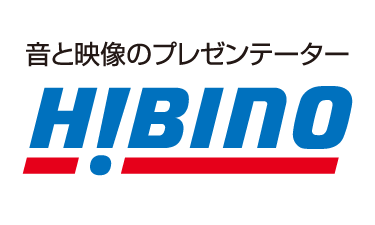Tokyo Marathon 2019 Wheelchair Elite Field has been announced. Please go to the link below for all the details.
Tokyo Marathon 2019 - Preview of Elite Wheelchair Race
Ever since 2017, when the new flat and fast course was introduced in the 11th edition of the Tokyo Marathon, fast times are being recorded. The Tokyo Marathon is now a truly world class race.
Two years ago, a former world record holder Wilson Kipsang (KEN) recorded the Japanese all comers record of 2:03:58 on this course. In the same year, a marathon debutant Yuta Shitara (JPN, Honda) ran aggressively and for a while, stayed close to Kipsang. The race gave hope and courage to Japanese runners and fans, leading to the thoughts "Japanese can compete well at the world class level."
Sequel to the drama, Shitara recorded Japanese record of 2:06:11 for the first time in 16 years. To add further excitement, the Japan Industrial Track & Field Association awarded Shitara with 100-million-yen prize money as part of "Project Exceed", a program launched to encourage athletes to break national records. Additionally, nine Japanese runners have cracked 2:10 for the marathon, showing that many of them are ready to compete at the world class level. I remember last year's race was nothing like previous years, leading to the new era for Japanese men's marathon.
This year, the 13th edition of the Tokyo Marathon, is expected to be even more exciting than the previous years.
On the men's side, Kenenisa Bekele (ETH), who has the personal best of 2:03:03, third fastest marathon in history on the standard course, head the field. Kenenisa, who is endowed with superior speed, won the gold medal at track events in both the 2004 & 2008 Olympics. He is known for his aggressive running style and thus likely to be the force to be reckoned with in Tokyo Marathon. Total of five 2:04 runners, including great tactician Dickson Chumba, the only two-time Tokyo Marathon champion (2014, 2018) on the men's side, and El Hassan El Abassi (BRN), who battled with Hiroto Inoue (JPN, MHPS) in the 2018 Asian Games, will start the race. Furthermore, two Kenyans with 2:05 marathon best are in the field. It is very interesting to see how the race will unfold.
The most fascinating runner in the field, at least from the Japanese perspective, is Suguru Osako (JPN, Nike Oregon Project), who recorded the national record of 2:05:50 in the Chicago Marathon in October. How will he run his first Tokyo Marathon? In the 2017 Boston Marathon, his debut, Osako recorded 2:10:28. In his second marathon, the 2017 Fukuoka Marathon, he improved his personal best to 2:07:19 before recording the national record in Chicago. He is steadily improving his personal best and his potential is unimaginable. By battling well against the runners from abroad including Kenenisa Bekele, perhaps he can improve his own national record again.
At the present time, two sets of pacemakers are planned for the men's race. First set of pacemakers will lead at 2:57-2:58 /km pace until 30km, targeting the time around 2:04:30 to 2:05:10. Osako, along with the Africans headed by Kenenisa Bekele are expected to follow the first set of pacemakers. I would also like to see other Japanese runners to follow these pacers to experience the world class races.
The second set of pacemakers will lead the runners at 3min/km to target the final time around 2:06:35. Ryo Kiname (JPN, MHPS), who finished seventh with 2:08:08 last year in Tokyo, as well as Shogo Nakamura (JPN, Fujitsu), who has the best of 2:08:16, have a potential to record 2:06 marathon. They probably target at least 2:07 marathon in Tokyo.
It is hard not to expect a great marathon from Kenta Murayama (JPN, Asahi Kasei). In the 10th edition of the Tokyo Marathon in 2016, Murayama was the only Japanese to stay with the lead pack as far as 22km. The impact he made in his debut marathon is unforgettable. Many imagine that Murayama runs better at a fast-paced marathon. If he is sucked into the fast pace, Murayama could move up several levels as a marathon runner.
In recent years, Japanese men's marathon is on the rise. Last year, Shitara and Inoue recorded 2:06 marathon in Tokyo. Later in the year, Inoue won the Asian Games marathon, Osako recorded the national record and first 2:05 marathon by Japanese in Chicago, and in December Yuma Hattori (JPN, Toyota Motors) became the first Japanese to win the Fukuoka Marathon in 14 years. With young and upcoming runners on the rise, the Japanese are closing on to the best in the world. I am determined to do everything possible for the race so that at least five Japanese will run 2:06 marathon before the 2020 Tokyo Olympics.
The women's field is also loaded this year with fast runners and thus the expectation for a great competition is high. The rising star from abroad is Ruti Aga (ETH), who recorded the personal best of 2:18:34 at the Berlin Marathon last September. Perhaps one set of women's pacemakers will aim for a 2:17 finishing time. In addition, there are three other runners with the personal best of 2:19 including Florence Kiplagat.
Among the Japanese women Honami Maeda (JPN, Tenmaya), who was second in the 2018 Osaka Women's Marathon and Keiko Nogami (JPN, 18 Bank), who won the silver medal at the 2018 Asian Games, will start the race. They have already qualified for the Marathon Grand Championships (MGC, the Japanese Olympic trial marathon). Yuka Takashima (JPN, Shiseido), who ran 10000m in the 2016 Olympic Games in Rio de Janeiro, is running her second marathon in her attempt to qualify for the MGC. Mao Ichiyama (JPN, Wacoal), making her marathon debut, is expected to run aggressively. Excitement is never ending for this year's race.
With the Tokyo Olympics just around the corner, elite runners, both men and women, are gathering in Tokyo to experience the Olympic course. It is exciting to see the world class competitions. If Osako and his Japanese rivals come close to the national record, it will add to the excitement. The history may be in making. Please enjoy the Tokyo Marathon 2019, the scene of world class runners running over the world class course.
■Battle for the Supremacy at Gathering of Eagles
Wishing to present the truly elite wheelchair race to the world, nine male and eight female athletes including the winners from all six Abbott World Marathon Majors events in 2018 are invited. It is truly a gathering of eagles. However, many of them will race in Tokyo for the first time and thus it may be hard to predict the outcome.
First, on the men's side, Marcel Hug (SUI) who won Boston Marathon in April will lead the field. Currently the best in the world, Hug excels in all aspects of racing. He can race away from the field from the early stage of the race, or out-sprint the competitions just before the finish line. In the Oita International Wheelchair Marathon, he recorded the 2018 season best of 1:23:56. Since Hug was second in the 2017 edition of the Tokyo Marathon, and missed the 2018 edition of the race with flight issues, we expect him to shoot for the victory by racing aggressively in Tokyo this year.
David Weir (GBR) who won the London Marathon in April, is not a front runner. Instead he waits and sees if anybody makes a move and react when the time comes. It is interesting to see his positioning within the pack, for this is his first Tokyo Marathon.
Brent Lakatos (CAN) who won the Berlin Marathon in September is actually a sprinter who excels at 100m. It is bit surprising that he competes in the T53 category, but won the race against T54 category racers, those with slightly lighter handicap. Such is a fascinating aspect of wheelchair racing.
Daniel Romanchuk (USA) won the Chicago Marathon in October and the New York City Marathon in November. He is the youngest in the field at twenty and perhaps the rising star of the future. Hope to see his aggressive racing style inspires his competitions.
Yoo Byunghoon of Korea, who finished third in the Oita International Wheelchair Marathon in November, is also invited. With the superior speed he honed in the track race, Yoo is rising fast in the marathon distance. He, like Lakatos, competes in T53 category. They are both light weights, and thus their reduced resistances might help them in the competitions. Two rookies in the Tokyo Marathon might fight it out till the end with their superior sprint ability.
Among the Japanese, last year's champion, Hiroyuki Yamamoto (Fukuoka) is the oldest among the invited athletes. He excels over the Tokyo Marathon course, so he will be ready.
Tomoki Suzuki (Toyota), who finished second in Oita International Wheelchair Marathon, may be at the height of his power. He is not a front runner but likely to sit and wait in the pack before unleashing his power near the end of the race.
On the other hand, Hiroki Nishida (Baccarat Pacific), who finished fifth in the Oita International Wheelchair Marathon, can compete aggressively from the start and make the race exciting.
Sho Watanabe (Toppan Printing), who won the Tokyo Marathon two years ago, also has great potential. The Invited Japanese athletes are expected to compete well against the invited athletes from abroad.
On the women's side, last year's champion Manuela Schar (SUI), who set the world record of 1:36:53 on the Berlin course, also won the Chicago and New York City Marathons. It shows that she is in awesome shape.
Madison de Rozario (AUS) who won the London marathon competes in T53 category. She is on the rise and also endowed with superior speed to win the final sprint to the finish line.
The Boston champion Tatyana McFadden (USA) always finishes within the top rank. I expect these three athletes to set a good pace.
Among the Japanese, Tsubasa Kina (Tireland Okinawa) set a personal best of 1:39:36 at Oita International Wheelchair Marathon, and she is steadily improving. Hope to see her stay with the world class athletes until the very end, fighting for a medal.
Both men's and women's field are expected to be great. Watch the race along the course or on air. It will be a nice preview of the 2020 Tokyo Paralympics.
The current course is generally known as "flat and fast course" which explains fast marathon times. However, wheelchair athletes assess the course as "quite tough." In fact the winning time for the men's wheelchair race was 1:28:01 in 2017 and 1:26:23 in 2018, quite a distance away from the world record of 1:20:14.
The pacemakers are not employed for the wheelchair racing and thus each racer need to maintain his/her own pace. It is a difficult part of the wheelchair racing but at the same time, it is the best part of the wheelchair racing.
The field includes those who can aim for the world record. If athletes took turn in leading the pack, the record is possible. Hope everyone can enjoy and cheer the wheelchair racers, for the race is full of speed and power.
Tokyo Marathon Wheelchair Race Director
Masuzumi Soejima
Elite Wheelchair Race page is here.



























